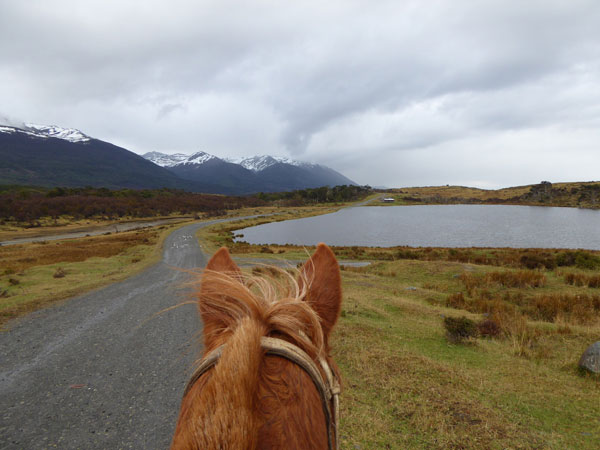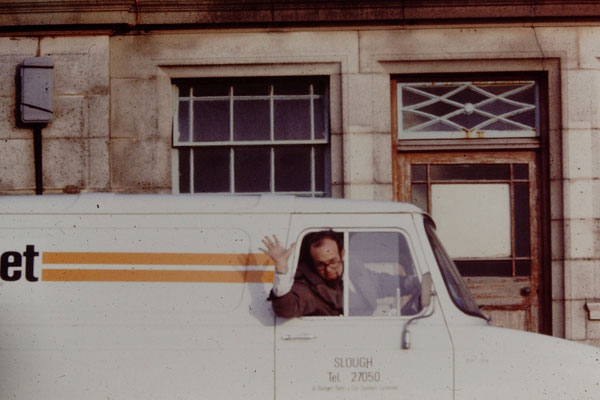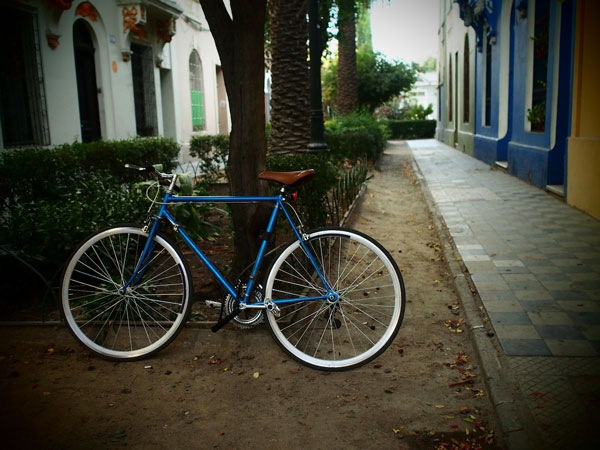When people ask me what languages I speak, I try to be fair, and say, just two, English and Spanish. But I can’t help sometimes throwing in that I also speak Chilean. Chilean bears a striking resemblance to Spanish, but there is a point of departure after which you may find a gringa (that’s me), expaining to a visiting Spaniard just what the heck is going on in a certain pop culture movie, and then realize that the two may be similar, but you don’t want to throw them into the same bag (echarlos en la misma bolsa fig: cast too wide a net).
One day, when I was just a few months into living in Chile, fighting to find my voice and learning as much Spanish and as much Chilensis as I could, trying to keep them separate or weave them together as the situation warranted, I was eating lunch at a friend’s house in Ñuñoa. Tortilla de acelga or swiss chard frittata as you might know it.
There was someone pounding quite insistently at the door, which was strange, since this particular house is down a tiny alley, and doesn’t get much traffic. My friend got up to see what the ruckus was about, and was confronted by something that he would later describe to me as:
Un tipo con un gallo.
Now, I could cut to the chase and tell you the punchline, but what fun would that be? So I’ll tell you my thought process.
A type with a rooster. Well, that doesn’t make sense, it just can’t be right. It must have been a guy, with, wait! I know, gallo can also mean guy. So it was a guy with a guy. Or better, a guy with a dude. That definitley sounds better.
Now, why didn’t he just say two guys, I wondered?
He looked at me incredulously, expecting an exaggerated reaction. I’ve had two people come to the door before, sometimes prostelytizing, sometimes not, and I didn’t see why I should get all up in arms. After all, it wasn’t my fritatta that had gotten cold while he went to answer the door.
And? I said.
El gallo estaba muerto. (The guy was dead).
Wow! now that’s interesting. I’ve never has someone show up at my door with a cadaver before, ala Weekend at Bernie’s.
Had he been dead a long time? I asked?
I don’t know, my friend said.
Well, who was he?
The guy? My friend said.
No, the dude! I said, getting frustrated that he couldn’t see that it’s more interesting to know who the dead person was than the live one.
Who? He said.
Yes! Who was he? I said.
I have no idea, he said. The guy said someone had ordered a dead dude, so he was looking for the person. Not me, I said, so he went away. He said.
Where’s the dude now? I asked.
He took him away, he said.
…
Do you see where this is going? So strong was my Chilensis filter, that gallo could not make it through as rooster, and ended up turning into a dude. Most of the time this would be correct, as with the exception of my friends over at the Huerto Hada Verde, not too many people I know actually talk about roosters that much, so the word gallo does generally mean dude, animal husbandry aside. Also, while having someone knock on your door carrying a dead rooster is odd, to be sure, it is not nearly as terrible as having them dragging dead uncle fulano (tom, of tom dick and harry) around the alleys of Santiago.
So while I wholeheartedly support learning all the Chilean slang you can and reading everything these hilarious ladies have to say, I also suggest never losing your filter, and trying to make sense out of when a rooster is nothing but a rooster. Even if it’s dead.










I also translated it as "a guy with a guy." Weird. Maybe I've been here too long.
Great one, Eileen! I would have thought the same thing.
You are hillarious. In my experience, all South American Spanish differs a lot from the Mexican Spanish that I'm used to. I never even pretend to know all the nuances.
@sara @abby, glad to know I'm not the only one. It took me the longest time to figure out what was going on. So glad no one has come across my path with a dead rooster lately. Plus we don't really call out roosters and hens, mainly just call them chickens, unless Abby cares do differ (she grew up on a farm, and knows lots more about livestock than I do!)
@fly girl, it's rumored that Chilean Spanish is "the worst" in terms of regional slang, or perhaps the thing to say would be "the richest." I giggled to myself when I was in El Salvador on the way back to Chile the other day and the bathrooms were labeled "tocadores." (touchers!). As we all know from your bathroom post (http://rosalindcummingsyeates.blogspot.com/2009/07/toilet-travel-tips-laviators-and-other.html)most of us prefer not to touch the apparatus at all!
One day we'll take on Latin America together. You can speak Mexican Spanish, and I'll speak Chilean and no one will understand either one of us!
Personally, I've never had a dead gallo of ANY sort at my door (human or chicken)… so I can't imagine my level of confusion… so why was the guy there with the dead roster anyway?? Sounds voodoo-esque to me!